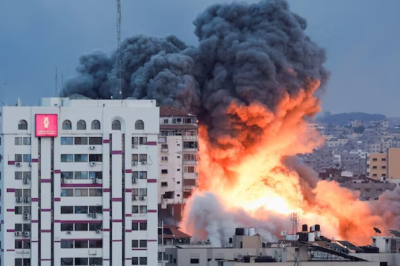
Following a recent missile and drone attack on April 13, Israel is reportedly preparing a significant military response against Iran, signaling a sharp escalation in regional tensions. This information comes from Israel’s Channel 12 news, which detailed the war cabinet’s plans to engage in what could be a decisive counter-strike.
Key Points on Israel’s Planned Response
- Military Readiness: According to the report, Israel is actively preparing its warplanes, including US-made F-16s, F-15s, and F-35s, for a potential strike aimed at delivering a clear and forceful message to Iran.
- War Cabinet Meetings: The decision to prepare for a military response followed two crucial war cabinet meetings where Israeli leaders plotted out their strategy in response to the attacks from April 13.
- Intended Message: Israeli officials stated that the planned counterattack is meant to demonstrate that attacks of significant magnitude will not be tolerated or left unanswered, although they expressed hopes that this would not escalate into a broader conflict.
- US and Allies’ Caution: Amid these preparations, US President Joe Biden, along with other allies, has advised Israel to exercise restraint. The US has specifically indicated that it would not support a counter-attack, highlighting a potential rift or point of contention between the US and its key Middle Eastern ally.
- Statements from Military Leaders: Israel’s military chief, Lt. Gen Herzi Halevi, affirmed that Iran’s actions would not go unanswered, although he did not provide specifics on the timing or nature of the response.
- Ongoing Conflict and Threats: The backdrop to this escalation includes a series of threats and counter-threats between Israel and Iran. Iran has warned of more severe attacks on Israeli targets should there be any retaliation, and has also cautioned the US against supporting an Israeli counter-strike, with specific threats towards US military bases in the region.
- Regional Coalition Plans: Israeli Minister Benny Gantz mentioned building a regional coalition against Iran, emphasizing that Israel would “exact a price” from Iran in a manner and timing of its choosing, according to The Independent.
- Broader Implications: This situation illustrates the volatile state of affairs in the Middle East, where military actions can quickly spiral into larger conflicts, affecting global geopolitical stability and involving major world powers like the United States.
As the situation develops, the international community watches closely, hoping for a resolution that avoids further escalation and leads to a stable peace in the region. Meanwhile, the potential for a new round of conflict looms large, highlighting the complex and often precarious nature of Middle Eastern politics and security.








































Leave a Reply